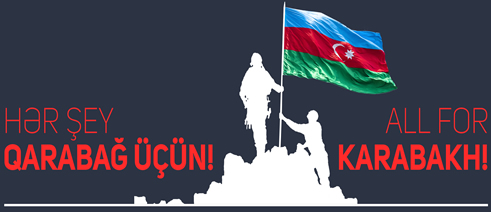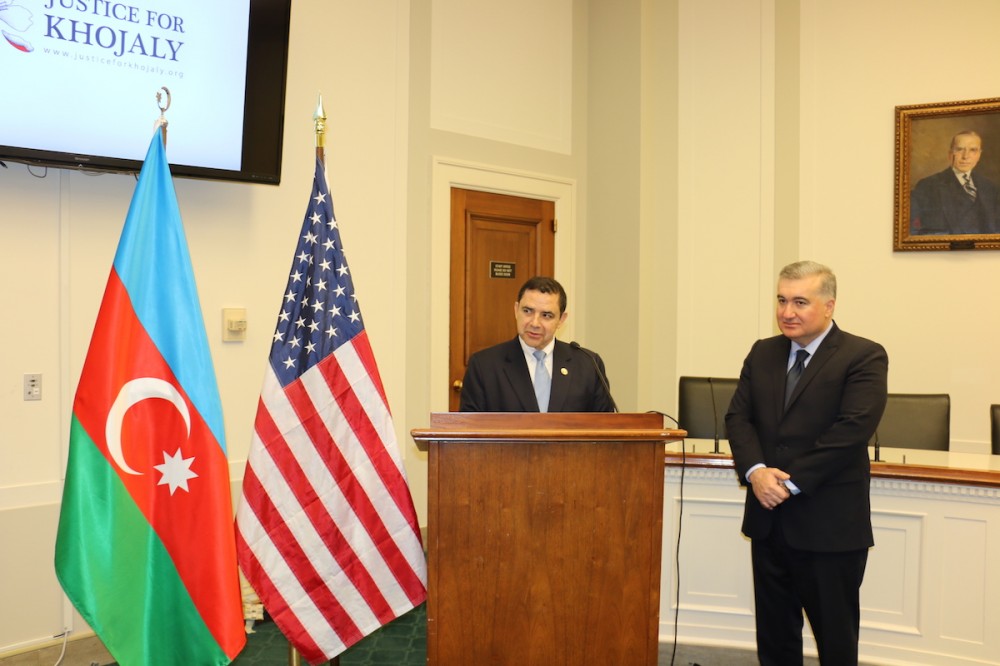


An event dedicated to the 27th anniversary of the Khojaly genocide was held in the US Congress, Trend reports referring to the Azerbaijani embassy in the US on March 1.
The members and staff of the Congress, representatives of Azerbaijani community and other communities in the US, as well as a witness of the Khojaly tragedy Anar Usubov attended the event.
Azerbaijani ambassador Elin Suleymanov told the participants of the event about the Khojaly tragedy, stressing that this is a genocide committed against the Azerbaijanis.
Anar Usubov, a resident of Khojaly, who presently lives in the US, shared memories of his hometown and childhood in Khojaly, as well as bitter memories associated with the tragedy in Khojaly.
The Khojaly genocide is a bloody page of the policy of ethnic cleansing and genocide being carried out by Armenian invaders against the Azerbaijani people for over 200 years.
The conflict between the two South Caucasus countries began in 1988 when Armenia made territorial claims against Azerbaijan. As a result of the ensuing war, in 1992 Armenian armed forces occupied 20 percent of Azerbaijan, including the Nagorno-Karabakh region and seven surrounding districts.
During the Karabakh war, on Feb. 25-26, 1992, the Armenian armed forces, together with the 366th infantry regiment of Soviet troops, stationed in Khankendi, committed an act of genocide against the population of the Azerbaijani town of Khojaly. As many as 613 people, including 63 children, 106 women and 70 old people were killed in the massacre. Eight families were totally exterminated, 130 children lost one parent and 25 children lost both. Some 1,275 innocent residents were taken hostage, while the fate of 150 people still remains unknown.
The 1994 ceasefire agreement was followed by peace negotiations. Armenia has not yet implemented four UN Security Council resolutions on withdrawal of its armed forces from Nagorno-Karabakh and the surrounding districts.
trend.az